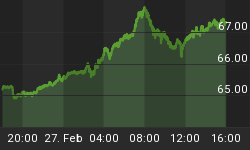In May 2013, the U.S. Treasury had spent up to its statutory debt limit. Treasury Secretary Jack Lew wrote House Speaker Boehner that the Treasury would "begin implementing the standard set of extraordinary measures that allows the Treasury to continue to borrow and spend even after it has hit the legal debt limit."
Through October 16, 2013, the Daily Treasury Statement showed "Total Public Debt Subject to Limit" at $16,699,396. The "16" is trillions; the numbers are in millions. The "Statutory Debt Limit" (the next line on the Daily Treasury Statement), showed, day-in and day-out: "$16,699,421. The difference was $25,000,000: This figure adds back the zeros not shown on the daily posting.
The Federal government continued to spend money, aside from showy pockets of austerity: the World War II memorial, for instance, and, aberrations unintentionally demonstrating the vast federal government waste that should be shut.
The October 17, 2013, Daily Treasury Statement shows the Statutory Public Debt Subject to Limit rose to $17,027,544. Adding in the zeros, this was an overnight increase of $328 billion. Except, it is not. That is, the Statutory Public Debt Subject to Limit is not subject to any limit. The October 17, 2013, Daily Treasury Statement listing for Statutory Debt Limit is *, or "*". Following the "*" we read: *Statutory debt limit temporarily suspended through February 7, 2014."
Of course, we know this is an artificial construct, as is the debt limit itself. The form it takes was explained in the October 22, 2013, King Report. Bill King quoted Seeking Alpha: "Up until yesterday, Congress had to approve of any increase in the debt ceiling. Theoretically it gave Congress leverage to negotiate with the President before approving of an inevitable debt ceiling increase. Now, if Congress refuses to pass a debt ceiling increase, the President has the power to veto the rejection. In order for Congress to override the President's veto, 2/3's of both Houses of Congress would have to approve of the rejection of the President's veto. There's no way both the Senate and the House would be capable of doing this. In other words, the President now has the ability to unilaterally get rid of the debt-ceiling limit. QE to infinity."
This may change or it may not. More important than the voting parameters is the knowledge there never was a debt ceiling. Through winks and nods among the Treasury Department, Congress, and the media, buffoonery held the public's attention, when it was all show.
Of the eye-opening exhibition of government waste, none will be canned, so a single example follows.
On October 2, 2013, that is: one day into the government shutdown, Air Force Lieutenant General (retired) Clapper, now Director of National Intelligence, testified before the Senate Judiciary Committee:
"I've been in the intelligence business for about 50 years. I've never seen anything like this. From my view... this seriously damages our ability to protect the safety and security of this nation and its citizens..... This affects our global capability to support the military, to support diplomacy, and to support our policymakers.
"The danger here, of course, that this will accumulate over time. The damage will be insidious. So each day that goes by, the jeopardy increases."
The danger, in General Clapper's view, is probably not what you expect: "This is a dreamland for foreign intelligence service to recruit, particularly as our employees, already many of whom [are] subject to furloughs driven by sequestration, are going to have, I believe, even greater financial challenges. So we're spending our time setting up counseling services for employees to help them manage their finances. So from my stand point this is extremely damaging and it will increase so as this shutdown drags on." [End of testimony].
Our intelligence agents, for whom General Clapper is responsible, are (were, until October 17) about to sell top secret information to the Enemy. The Evil Empire, it turns out, is that America's best and brightest, defenders of the faith, have hit their credit card limits. Reds under the Bed made for more stimulating drama, even if it was a screenwriter slipping subversive jokes about Stalin's dacha into the Milton Berle Show.
While the media was talking rot about budget and Treasury coupon payment such-and-such, the Director of National Intelligence for the United States made a clear statement the U.S. intelligence establishment is untrustworthy. Clapper's testimony leads to one solution: the entire intelligence bureaucracy should be fired. Alternatively, it is possible that General Clapper has lost his mind, and should treated as top secret intelligence chiefs who may switch sides at any moment are handled.
In any case, this should have been front page news. Americans should know the imminent danger they face.
The point was made above about "the public's attention." There can be a difference between "public" and "popular" opinion. Public opinion, orchestrated by such parties as the Treasury, Congress, and the media, is generally successful in molding popular opinion. Examples being the people's willingness to cheerfully buy War Bonds, send their sons, and march off, "over, over there," in the two World Wars.
A dangerous situation may develop when popular opinion falls flat with the people. This, the entire staff here agrees, was true of the debt ceiling and sequestration debate. Opinion polls do not measure depth of feeling. The media - some of it - seemed to sense this, with a "hey guys, this is important! Wake up! Get scared!" The disengagement contrasts to the high anxiety mood in July 2011, when the same topics cornered attention. In other countries, at other times, when the people stopped believing, they disbelieved everything, true or false.
Frederick Sheehan writes a blog at www.aucontrarian.com
















